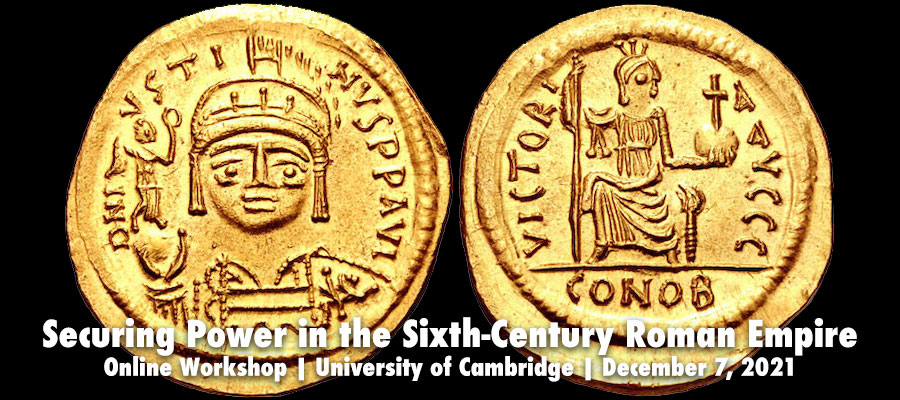Securing Power in the Sixth-Century Roman Empire, Online Workshop, University of Cambridge, December 7, 2021
Imperial power in the sixth-century Roman empire could be fragile. ‘Every emperor had to perform a delicate balancing act to remain in power’ by responding to and accommodating the shifting demands of public opinion and various interest groups: senators, bureaucrats, bishops, soldiers and generals, urban factions, and more (Greatrex 2020; Meier 2016; Kaldellis 2015; Bell 2013; Pfeilschifter 2013). Each of these groups have individually assumed increasingly important roles in political narratives of the period, but comparatively little attention has been paid to how those in power – emperors, patriarchs, governors, magistrates, and others – were subjected to pressures and attempted to build power bases across these interest groups.
In particular, modern scholarship has established a boundary between “secular” and “ecclesiastical” politics which sixth-century century political actors neither experienced nor refrained from crossing as they tried to secure or challenge power. The purpose of this workshop is to close these artificial divides and to explore how power was contested and secured “without limits”, in order to take better account of the interconnectedness of the sixth-century world, the flexible array of political pressures to which those in power were subjected, and the sometimes unexpected consequences of responding to these pressures. The goal of this approach is to produce a more holistic, comprehensive understanding of sixth-century power struggles.
We invite PhD candidates and early career researchers submit abstracts.
